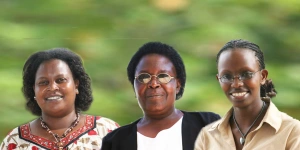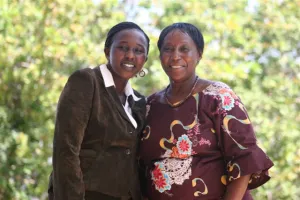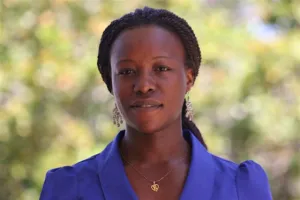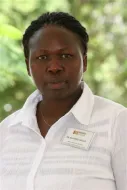Q&A: Gender Missing in Climate Agreements
Sabina Zaccaro interviews IUCN gender advisor LORENA AGUILAR REVELO
ROME, Dec 7 (IPS/TerraViva)
Women are known to be innovators when it comes to responding to climate change. The question is how to ensure that the role of women and gender equality are reflected in climate change agreements.
Women in poor countries will be the most affected by climate change effects, according to the 2009 State of the World Population report, released last month by the United Nations Population Fund. This is because women comprise the majority of the world’s farmers, have access to fewer income- earning opportunities, and have limited or no access to technology.
To understand how far women are involved in decision making on climate change, TerraViva spoke with Lorena Aguilar Revelo, global senior gender advisor to the International Union for Conservation of Nature (IUCN) which is a part of the Global Gender and Climate Alliance launched at the United Nations climate change conference in Bali in December 2007.
IPS: Women are said to be the major agents of change, but their role is still not recognised, according to the gender and climate alliance.
LORENA AGUILAR REVELO: Women have been playing a major role in the management of natural resources for centuries, dealing with the agricultural sector. In countries of Africa, in Congo for example, they produce 73 percent of the food and in Africa as a whole 50 percent of the food that is being consumed on the continent.
Unfortunately, when you look at the other data you see that women only own one percent of the land worldwide; or when you look at the money from the new financing mechanism – or the previous financing mechanism – associated with climate change, you don’t find women as major beneficiaries.
IPS: Why is that so?
LAR: The reason is that the whole climate change convention is gender blind. Of the three major conventions related to climate change – desertification, biodiversity and climate change – the U.N. Framework Convention on Climate Change is the only agreement with no mention of gender.
There are innumerable global mandates calling for integrating a gender perspective into environmental and poverty reduction efforts that also apply to climate change. Nevertheless, there is no gender plan of action and even no mention of gender or women’s issues.
And if you analyse all the numbers that have been developed by the least developed countries, only four of them mention gender issues – in a very simplistic way. Bangladesh is the only country that has made an effort to move along these lines.
IPS: What steps are being taken to include gender perspectives into the mitigation and adaptation efforts?
LAR: Three years ago we established this alliance, and we are making sure in the new texts that any regime that comes after Copenhagen – and now probably Mexico – must have gender in it.
So far, the parties have submitted 39 references to gender and climate change, after a tremendous amount of advocacy work.
But we need to make sure that there are specific resources for women; whatever project is going to come out it must consider this, otherwise women are feeling the effects, they have a tremendous amount of knowledge on mitigation and adaptation but they are not part of anybody’s agenda.
IPS: Could you mention some examples?
LAR: Right now we are discussing a new regime that is called REDD (reducing emissions from deforestation and degradation). At the national level, for those countries that have forests it is very important. So far the discussions over REDD again have been gender blind.
Women are using the forests in a different way than men. In some countries, India for example, the role of women in protecting the forests to avoid deforestation has been major; and the same is true for Brazil or Guatemala.
When it comes to forests and mitigation – one of the major areas being discussed – it is fundamental that in those countries that have forests, where women are users of the forests, they are involved in defining how the forests are going to be used, but also in receiving the benefits that will derive from the REDD regime.
IPS: How can the participation of women in decision-making on climate change be increased?
LAR: It is fundamental that in the discussion on REDD, women are invited as stakeholders, that they’re trained to understand what REDD is about, because no one understands that very well.
When it comes to adaptation it’s the same thing. We are talking about reducing the impact of disasters for example; it means making sure that women are fully participating in disaster risk reduction processes.
IPS: Do you expect that delegates to Copenhagen will give due attention to your concerns?
LAR: We have been updating and training COP delegates for two years now. Delegates from various countries have been extremely open to including the topic of gender, like those from EU, Liberia, Ghana, Nicaragua, Costa Rica, and the U.S. In the high-level declaration that will probably come out of Copenhagen, we know there is going to be one mention of gender. If we get that at the end of Copenhagen it is a massive win.
(*This story appears in the IPS TerraViva online daily published for the CoP 15 at Copenhagen.)
Source: http://www.ipsnews.net/news.asp?idnews=49563



